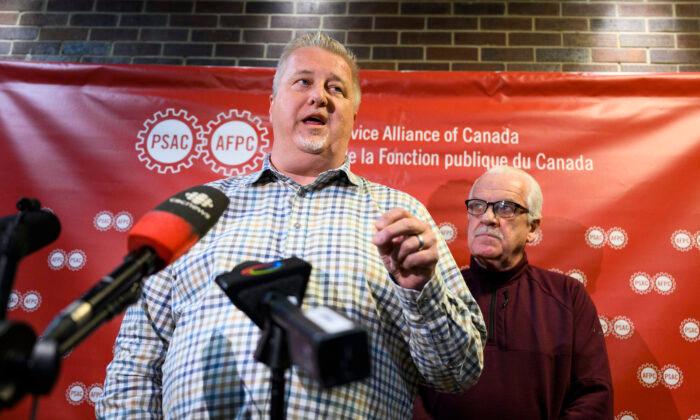The Canada Revenue Agency has reached a tentative deal with the Public Service Alliance of Canada (PSAC) and Union of Taxation Employees members (UTE) for more than 35,000 CRA workers, completely ending the Canada-wide strike of government employees that began on April 19.
“PSAC-UTE members held the line together and secured a fair contract that keeps up with the cost of living, increased protection around remote work, and creates safer, more inclusive workplaces,” said PSAC National President Chris Aylward.
The four-year deal signed by the CRA and UTE means the workers will return to their jobs by 11:30 a.m. on May 4.
Similar to the agreement previously signed with the PSAC for 120,000 workers, the new collective agreement with the UTE workers will provide 12.6 percent in compounded wage increases over the next four years, a one-time pensionable payment of $2,500, and an additional fourth year in the agreement that protects workers from inflation.
The UTE said, when it comes to remote work, managers will be required to assess work-from-home requests individually, which will prevent the federal government from implementing “one-size-fits-all” mandates calling workers back into the office. In December 2022, the federal government mandated that federal employees would have to work in person at least two or three days per week.
Strike Ends
National president of the UTE Marc Brière said in a press release that the deal was a “fair contract” for members.“I’m incredibly proud of our members that supported our bargaining team on the picket lines to help us secure the fair contract that they deserve,” he said.
The tentative deal brings to an end nearly two weeks of protests that disrupted government services, traffic, and critical infrastructure across Canada.On May 3, the UTE threatened it would send its members to disrupt a Liberal party convention in Ottawa if the CRA did not present a fair deal by May 4.





